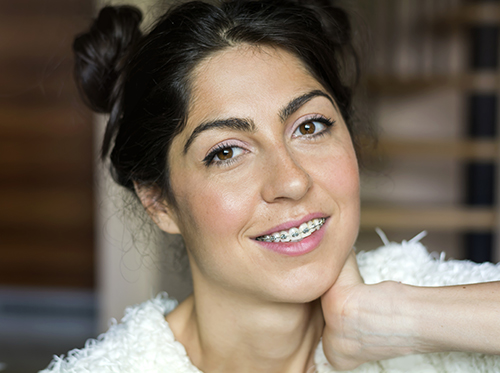At what age should my child have an orthodontic evaluation?
August 22nd, 2018

You may have noticed that kids seem to be getting braces and other orthodontic care a lot earlier these days. There was a time, only a decade or two ago, when braces were mainly seen on teenagers, but that is beginning to change. If you’re wondering when to bring your child to our Chestnut Hill, Massachusetts office for an orthodontic evaluation, the answer actually has several parts.
The Telltale Signs
If your child has a very crowded set of adult teeth coming in, or if the permanent front teeth came in very early, these are signs that your child should see Drs. Cartsos and Zavras, regardless of age.
The Dental Age
Barring signs of trouble or early adult teeth as mentioned above, the time that your child needs to be seen for initial orthodontic evaluation depends not so much upon your child’s actual age, but on what is known as a “dental age.”
The dental age of the patient might be entirely different from his or her actual chronological age; for example, an eight-year-old could have a dental age of 13. It is part of Drs. Cartsos and Zavras and our staff’s job to determine the dental age and then make appropriate recommendations for the resolution of orthodontic issues if they are emerging.
The Official Recommended Age
The American Association of Orthodontists officially recommends that kids should see an orthodontist for the first time between the ages of seven and nine. Even if the child does not have all his or her permanent teeth, the teeth growth pattern can usually be predicted quite effectively by an orthodontist.
This allows for a proactive response to emerging problems, and this is the reason that some younger children are now getting orthodontic devices earlier in life. If a young child has serious orthodontic issues emerging, Drs. Cartsos and Zavras can usually address the problems immediately and then follow up with another round of treatment when the child has all the adult teeth.










